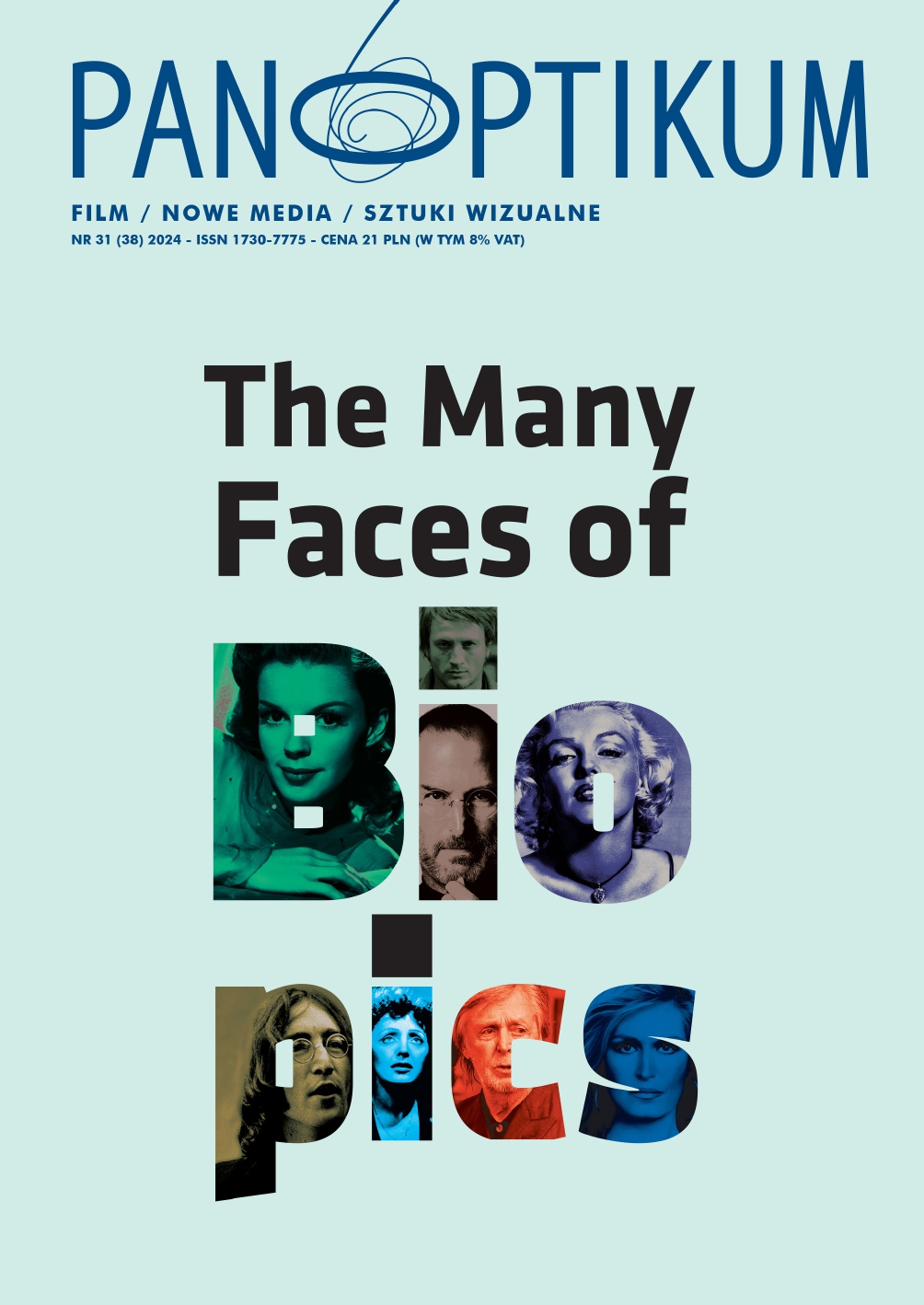The Politics of a Portrait: Biopics, Slavery and Contemporary Racial Politics in the United States
DOI:
https://doi.org/10.26881/pan.2024.31.06Słowa kluczowe:
African American cinema, slavery, racism, minority representationAbstrakt
The article examines the connection between the past and the present, and between the personal and the political, in three recent biographical pictures directed by filmmakers of color: The Birth of a Nation (2016, dir. Nate Parker), Harriet (2018, dir. Kasi Lemmons), and Emancipation (2022, dir. Antoine Fuqua). By addressing the history of American slavery, the films not only come into a dialogue with the preexisting representations of slavery in music, photography and cinema, but also reflect on current racial politics and antiracist activism in the United States. They offer a commentary on changing attitudes towards the issue of race in America, and engage with the collective memory of slavery - a past trauma, which has shaped the African American identity.
Downloads
Bibliografia
Alexander, J.C. et al. (2004). Cultural Trauma and Collective Identity. Oakland: University of California Press. Bates, I. (2014) Candide Unchained?. https://www2.bfi.org.uk/news-opinion/sight-sound- magazine/comment/candide-unchained, accessed: 31.08.2023.
Bingham, D. (2010). Whose Lives Are They Anyway?: The Biopic as Contemporary Film Genre. New Brunswick: Rutgers University Press.
Bingham, D. (2013). The Lives and Times of the Biopic, in R.A. Rosenstone and C. Parvulescu (eds) A Companion to the Historical Film. Chichester: Wiley-Blackwell.
du Bois, W.E.B. (2007). The Souls of Black Folk. Oxford: Oxford University Press.
Bradford, S.H. (1869). Scenes from the Life of Harriet Tubman. Auburn: W. J. Moses. Brown, K. (2016). I’m So Damn Tired of Slave Movies. https://www.jezebel.com/im-so- damn-tired-of-slave-movies-1755250873, accessed: 31.08.2023.
Clarke, J.H. (ed.) (1968). William Styron’s Nat Turner: Ten Black Writers Respond. Boston: Beacon Press.
Clinton, C. (2020). More than Ready for Her Close-Up: Harriet Tubman on Screen. “Reviews in American History”, 48(2).
Douglass, F. (2015). Lecture on Pictures, in J. Stauffer, Z. Trodd, and C.-M. Bernier (eds) Picturing Frederick Douglass An Illustrated Biography of the Nineteenth Century’s Most Photographed American. New York, London: Liveright.
Eyerman, R. (2003). Cultural Trauma: Slavery and the formation of African American identity. Cambridge: Cambridge University Press.
Fleming Jr., M. (2012). Q&A with Steven Spielberg: Why It Took 12 Years To Find ‘Lincoln’, “Deadline Hollywood”. www.deadline.com/2012/12/steven-spielberg-lincoln- making-of-interviewexclusive/, accessed: 29.06.2024.
Focus News (2019). Print The Legend: Writing The Screenplay For Harriet. https:// www.focusfeatures.com/article/interview_screenwriter_gregory-allen-howard, accessed: 21.03.2024.
Fox-Amato, M. (2019). Exposing Slavery: Photography, Human Bondage, and the Birth of Modern Visual Politics in America. Oxford: Oxford University Press.
Gray, T.R. (1832). The Confessions of Nat Turner. Richmond: T. W. White.
Guerrero, E. (1993). Framing Blackness. Philadelphia: Temple University Press.
Hartman, S. (2007). Lose Your Mother: A Journey Along the Atlantic Slave Route. New York: Farrar, Straus and Giroux.
Hartman, S. (2022). Scenes of Subjection: Terror, Slavery, and Self-Making in NineteenthCentury America. New York: W.W. Norton & Company.
Jordan, E.A. and Brooms, D.R. (2018). White Savior Tropes, in: S.J. Murguía (ed.) The Encyclopedia of Racism in American Films. Lanham: Rowman & Littlefield.
Kelley, S.M. (2019). Twelve Years a Slave and the “Unthinkability” of Enslaved Autobiography, in T.S. Freeman and D.L. Smith (eds) Biography and History in Film. Cham: Palgrave Macmillan.
Kinser, J. (2016) Nate Parker Looks to Provoke Change with ‘The Birth of a Nation’, https://www.sundance.org/blogs/artist-spotlight/nate-parker-wants-the-true-story-hetells-in-the-birth-of-a-nation-to-create-discussion-and-change/, accessed: 21.03.2024.
Landsberg, A. (2004). Prosthetic Memory: The Transformation of American Remembrance in the Age of Mass Culture. New York: Columbia University Press.
Martin, M.T. and Wall, D.C. (2013). The Politics of Cine-Memory: Signifying Slavery in the History Film, in R.A. Rosenstone and C. Parvulescu (eds) A Companion to the Historical Film. Chichester: John Wiley and Sons, Inc.
Massood, P.J. (2017). To the past and beyond: African American history films in dialogue with the present, “Film Quarterly”, 71(2).
Plath, L.J. (2019). “The Lynching Had to Be the Best It Could Be Done”. Slavery, Suffering and Spectacle in Recent American Cinema, in A. Dix and P. Templeton (eds) Violence from Slavery to #BlackLivesMatter: African American History and Representation. New York, Oxon: Routledge.
Richardson, A. V. (2020). Why Cellphone Videos of Black People’s Deaths Should Be Considered Sacred, Like Lynching Photographs. https://theconversation.com/why- cellphone-videos-of-black-peoples-deaths-should-beconsidered-sacred-like-lynchingphotographs-139252, accessed: 28.03.2024.
Schmidt, A. and Fucile, F. (2019). Two Takes On Harriet, “Film & History: An Interdisciplinary Journal”, 49(2).
Sharpe, C. (2016). In the Wake: On Blackness and Being. Durham: Duke University Press.
Simcovitch, M. (1972). The Impact of Griffith’s “Birth of a Nation” on the Modern Ku Klux Klan, “Journal of Popular Film”, 1(1).
Smoliński, S. (2015). ‘“Django”, “Zniewolony” i kino rewizji historycznej’, in E. Drygalska and M. Pieńkowski (eds) Kino afroamerykańskie. Twórcy, dzieła, zjawiska. Gdańsk: Wydawnictwo Naukowe Katedra.
Stevenson, B.E. (2014). 12 Years a Slave: Narrative, History, and Film, “The Journal of African American History”, 99(1–2).
Vidal, B. (2014). Introduction: The Biopic and its Critical Contexts, in T. Brown and B. Vidal (eds) The Biopic in Contemporary Film Culture. New York, Oxon: Routledge.
Vidal, B. (2021). New Women’s Biopics: Performance and the Queering of Herstor/ies, “European Journal of Life Writing”, 10.

 Uniwersyteckie Czasopisma Naukowe
Uniwersyteckie Czasopisma Naukowe









